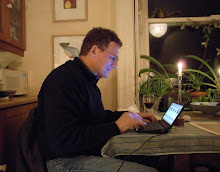 To some, Hanukkah feels inauthentic, even meretricious. It's a lesser, non-Biblical holiday, that Jews largely ignored for many years. American Jewry, however, has embraced it with such enthusiasm, that it is now the most public of all Jewish observances in the United States.
To some, Hanukkah feels inauthentic, even meretricious. It's a lesser, non-Biblical holiday, that Jews largely ignored for many years. American Jewry, however, has embraced it with such enthusiasm, that it is now the most public of all Jewish observances in the United States.Why? Certainly, its synchronicity with Christmas.
In Christian-majority America, Jewish children, like myself, used to be obliged to participate in Christmas caroling, tree trimming, and card making, along with yuletide pageants, concerts, and Christmas plays that were rehearsed in class and performed on the school stage. Teachers meant no offense; they simply didn't want the tiny minority of Jews--just three of us in my school--to feel excluded.
Hanukkah may have saved American Judaism. It gave Jewish children a festival for which parties, pastries, holiday lights, and gift giving were appropriate. Jews could partake of the holiday spirit without having to convert.
By tradition, the lights of Hanukkah are not to be put to any useful purpose, hence it is appropriate to place the menorah in the window, and maybe even string some blue holiday lights outside, as well.
Anything wrong with this? Not at all, unless one considers Hanukkah's origin as a courageous rebellion against Hellenization brutally imposed by Antiochus, king of the Syrian-Greeks. In ancient times, obliterating languages, religions, and cultures at the point of the sword was common.
So the holiday that marked Jews' defiance of forced assimilation is now the most visible evidence of their desire to be included in the American zeitgeist.
The Revolt of Mattathias by Gustave Dore (1832-1883). Mattathias, a Jewish priest, refused to perform a sacrifice to the Greek gods in Solomon's temple. When an apostate Jew complied with the Seleucid general who had compelled this act of Hellenization, Mattathias killed them both and overturned the idolatrous sculpture. With his son, Judah Maccabee, he thereby started the revolt that culminated in retaking the temple and rededicating it to the worship of the God of Israel. Hanukkah means rededication.



5 comments:
Thank you, TallTchr, for the lovely post on Hannukah tradition. It warms the heart and lifts one's moral.
The first day of this year's Hannukah in Israel coincides with the first day of very serious fires that have broken out in the northern part of the country causing loss of lives and property.
It seems as if the fire of the Hannukah candles which is supposed to bring light in our lives, has turned into a destructive fire.
The rabbis claim that the fire disaster on Mt. Carmel and its surroundings , and the complete lack of rain - are a sign and warning from Above, and they, the religious people, plan to organize a special Prayer at the Wailing Wall.
So, there is no much joy to be seen around. People still light the eight candles in the Menorah (Hannukiah), say the appropriate prayers, eat some doughnuts - but without the same enthusiasm and cheerfulness that usually characterize this holiday.
Time to bring out my Hanukkah Bush. I dedicate it to you TallTchr. ;-)
HAPPY HANUKKAH!!!
Duta, I've always resented the way so-called pious leaders will hijack a disaster as proof of their own righteousness. The fatuous Pat Robertson and unlamented Jerry Falwell exploited the victims of 9/11 to voice their bias against gays. Anyone who pretends to know God's mind has lost their own.
Paula, Happy Hanukkah! I've two little pine trees on my property that the county wants me to cut down. Should I make them into Hanukkah bushes?
I'm not familiar with the names, but I do see your point.
Still, I think we should prefer those who pray to God rather than those who believe THEY are God.
Post a Comment